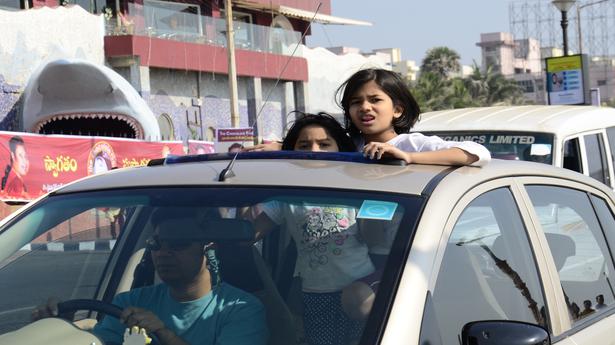
Why long car journeys are so excruciating for your kids
The Hindu
Our experience of time changes as we age, often resulting in the sensation of time passing more quickly as we get older
Parents often say: “If I had a pound for every time I heard ‘are we nearly there yet?’, I’d be rich.” Having three young children myself, I know only too well the feeling of dread when, 30 minutes into a five-hour drive, the interrogation begins.
In our family, it starts quite politely. “Mummy, are we nearly there yet?” drifts over from the back seats. But this approach is rapidly replaced by an aggressive cross-examination, picking apart how much longer I previously said was left of the journey versus how long I am currently saying remains.
By the end of the drive, I have promised myself that I will never take them anywhere ever again. But why is it that journeys seem so excruciatingly long for children? One reason is that our experience of time changes as we age, often resulting in the sensation of time passing more quickly as we get older. This is typified by the sensation that “Christmas comes around more quickly each year”.
Time is thought to pass more quickly as we age because, with increasing age, any duration of time becomes a smaller proportion of our life to date. For example, at seven years old, a year is 14.30% of your entire life; at 70 years old it’s only 1.43% of your life. As such, a five-hour car journey may feel longer to a five-year-old than to a 50-year-old, simply because it is a greater proportion of the five-year-old’s life.
But there’s more to it than that. As we age, we also develop a greater understanding of distance and geography. This knowledge provides us with markers and cues we use to understand how much of the journey is done and how much remains.
For example, on a journey from Manchester to Devon, I know that I’m roughly halfway there when we clear Birmingham, and this knowledge helps to structure the time for me. I also have access to the satnav, which provides an arrival time and warns me about upcoming delays. The absence of this knowledge in children means that they are more reliant on asking adults how long is left to judge the progress of the trip.
Children’s uncertainty about how long has passed and how long remains is made worse by their lack of control over the journey itself. It’s the grownups who choose which service station to stop at and which route to take. This may also contribute to the journey dragging by for children.













